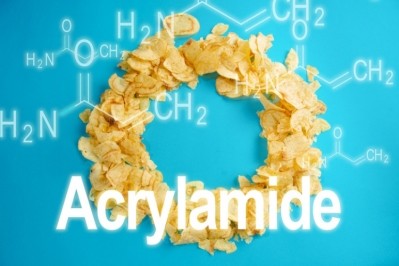Researchers strike gold in the search for a healthier potato chip

By identifying and ‘silencing’ the gene responsible for cold-induced sweetening (CIS) – developed during the cold storage of fresh potatoes – researchers from Michigan State University (MSU) have opened up possibilities to develop potato varieties that resist this process.
The breakthrough not only promises to revolutionize the $250bn global savory snack market but will also sets a new standard for global food health standards.
Cold-induced sweetening is responsible for the formation of acrylamide, a compound produced during cooking at high temperatures. Acryalmide is considered a carcinogenic and has attracted much attention from both consumers and regulators.
The presence of acrylamide hasn’t stopped the consumer from munching on potato chips, though, and this year, Statista projects almost 300 million Americans will tuck into a bag or two. That is a lot of potatoes.
However, farmers can’t grow crops year-round, which means potatoes are placed into cold storage to ensure a constant supply of fresh spuds in the lean months. But the low temperatures trigger the CIS process, which converts starches to sugars.
Although there are techniques to reduce sugars in cold-stored tubers, these add cost and can affect the flavor of the final product.
So, MSU researchers Prof Jiming Jiang and Prof David Douches set out to tackle the challenge by developing CIS-resistant potatoes.
Getting to the root of the problem
By identifying the specific gene responsible for CIS – called vacuolar invertase (Vlnv) – but more specifically, what actives it in cold conditions – they have laid the groundwork for developing potatoes that naturally resist this sweetening process.
“We’ve identified the specific gene responsible for CIS and, more importantly, we’ve uncovered the regulatory element that switches it on under cold temperatures,” said Prof Jiang, an MSU Research Foundation Professor in the departments of Plant Biology and Horticulture.
What the industry is doing to tackle acrylamide
Acrylamide is a chemical substance formed when starchy foods – such as potatoes and bread are baked, fried, grilled, toasted or roasted at temperatures above 248°F (120°C). It is also present in biscuits, cakes, cereals, coffee and more.
Research has found that acrylamide causes cancer in animals, with the potential to do the same in humans.
As such, the food industry has undertaken a lot of work to identify and implement measures to reduce acrylamide levels in products. Legislation, too, requires product developers to put in place simple, practical steps to manage acrylamide within their food safety management systems, including sourcing of ingredients and appropriate storage. Even tougher directives on benchmark levels were introduced in 2023.
“By studying how this gene turns on and off, we open up the possibility of developing potatoes that are naturally resistant to CIS and, therefore, will not produce toxic compounds.”
Prof Jiang has dedicated his career to minimize acrylamide, one of the most pressing issues in the potato industry. Together with his team at the University of Wisconsin-Madison, he published a paper in 2010 that identified the gene responsible for potato CIS. He moved to MSU in 2017, expanding on his previous research to pinpoint which elements of that gene could be modified to stop the CIS process.
Jiang’s team – which includes collaborators across MSU’s campus as well as at other research universities – used a combination of gene expression analysis, protein identification and enhancer mapping to pinpoint the regulatory element controlling the CIS gene.
“MSU’s collaborative research environment and facilities, including the worldclass potato breeding program led by Dave Douches, were instrumental for this research,” he said.
“Our next steps involve using this knowledge to create CIS-resistant potato lines through gene editing or other breeding techniques in Dr Douches’ greenhouses.”
Added Dr Douches, lead of the MSU’s Potato Breeding and Genetics Program, “All our facilities are on campus so the research work can be done efficiently. With our collaboration, we were able to produce a finding that paves the way for targeted genetic modification approaches to create cold-resistant potato varieties.”
Acrylamide-resistant potatoes?
Their findings – published in the journal The Plant Cell – hold promise for the development of potato varieties that can still be stored under cold temps and won’t form the toxic compounds when subjected to high heat.
It also cancels out the need for costly interventions that could possibly alter the flavor of the final product.
But ultimately, it could lead to the savory snack sector’s golden goose – potato chips that are better-for-you.
“This discovery represents a significant advancement in our understanding of potato development and its implications for food quality and health,” added Prof Jiang.
“It has the potential to affect every single bag of potato chips around the world.”
The potential impact of this research could also have broader implications for other foods that have the potential to develop acrylamide during processing.
Studies:
Xiaobiao Zhu, et al, Molecular dissection of an intronic enhancer governing cold-induced expression of the vacuolar invertase gene in potato, The Plant Cell (2024). doi: 10.1093/plcell/koae050
Pudota B. Bhaskar, et al, Suppression of the vacuolar invertase gene prevents cold-induced sweetening in potato, Plant Physiology, Volume 154, Issue 2, October 2010, Pages 939–948, doi.org/10.1104/pp.110.162545




















